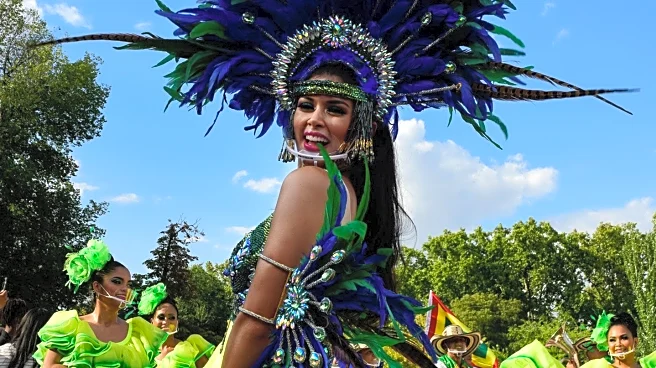What's Happening?
The Leeds West Indian Carnival is engaging young participants through the Young Masqueraders Summer School, where children are learning to make costumes and dance moves for the upcoming event. The carnival, which began in 1967, celebrates Caribbean culture and heritage. Costume designer and dance teacher Pareesha Valentina Joseph is leading the initiative to involve children of Caribbean descent in the carnival preparations, emphasizing the importance of passing down cultural traditions. The carnival is rooted in historical practices from slavery times, where slaves would mimic landowners' attire during annual celebrations. Participants express pride and excitement in being part of the carnival, which serves as a celebration of freedom and cultural heritage.
Why It's Important?
The Leeds West Indian Carnival plays a crucial role in preserving and promoting Caribbean culture within the community. By involving the younger generation, the carnival ensures the continuation of cultural traditions and fosters a sense of identity and pride among participants. The event also serves as a platform for educating the public about the historical significance of carnival celebrations, highlighting the resilience and creativity of Caribbean communities. The carnival's emphasis on cultural education and community involvement contributes to social cohesion and cultural diversity in the region.
Beyond the Headlines
The carnival's focus on engaging young participants highlights the broader importance of cultural education in fostering understanding and appreciation of diverse traditions. By teaching children about the historical roots and cultural significance of the carnival, the event promotes inclusivity and respect for different cultural backgrounds. The carnival also serves as a reminder of the transformative power of cultural celebrations in overcoming past oppression and celebrating freedom. This approach may inspire other cultural events to prioritize educational initiatives and community involvement.









